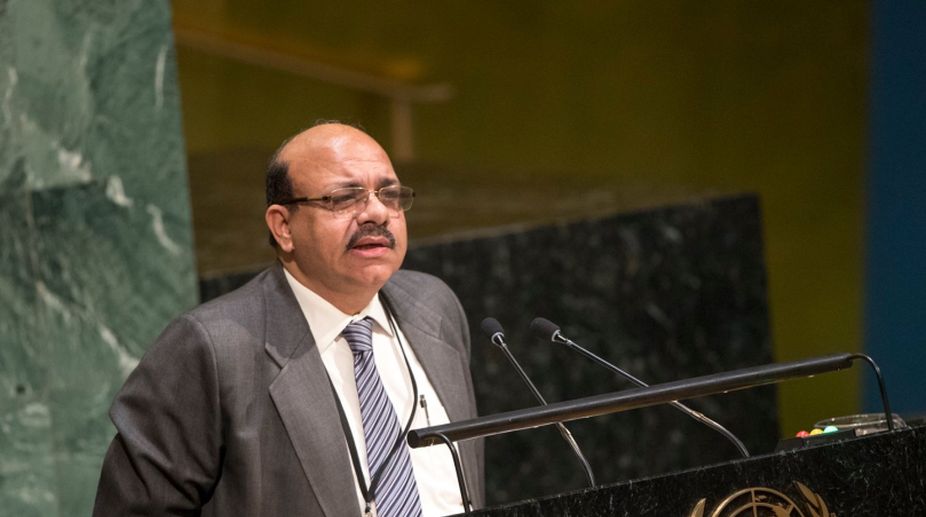India and NATO~III
It can be said that India’s Taiwan policy options are limited. We cannot take on the Chinese single-handedly. QUAD’s policy towards Taiwan is somewhat vague and ambiguous.

Jaideep Govind (Photo: Facebook)
India has called for adoption of a multi-pronged strategy to fight the global battle against the scourge of human trafficking.
According to UN Secretary General Antonio Guterres tensofmillions of people around the world were victims of forced labour, sexual servitude, recruitment as child soldiers and other forms of exploitation, with such abuse gripping the weakest and most vulnerable.
Advertisement
Additional Secretary Jaideep Govind in his address to the General Assembly yesterday on the appraisal of the ‘Global Plan of Action to Combat Trafficking in Persons’ insisted that the focus needs to be on developmentissues in the countries of origin and demand for trafficked persons for exploitative purposes in the destination countries.
Asserting that the Indian Government has accorded “highest priority” to combating trafficking, the top official from the Ministry of Home Affairs said that despite collective efforts at national, regional and international levels, the battle against the scourge of human trafficking is far from over.
“We need to redouble our efforts and adopt a multi- pronged strategy. India stands firmly committed to work with the international community in this battle against trafficking in persons,” Govind said.
Stressing that the will to fight human trafficking must be manifested in action, the UN General Assembly President Miroslav Lajcaksaid the UN has a duty to be a voice for victims.
For people to live freely and peacefully, they must be free from the threat of trafficking, he added.
At the outset, the General Assembly endorsed the “political declaration on the implementation of the United Nations Global Plan of Action to Combat Trafficking in Persons” by consensus.
Many speakers described human trafficking as “modern-day slavery.”
In addition to representatives from several dozen countries addressing the General Assembly, several survivors of human trafficking recounted painful stories of kidnapping, violence and rape.
Govind in his remarks said that India’s anti-trafficking legislative framework is based on the bedrock of the Article 23 of the Constitution which prohibits trafficking and forced labour.
A comprehensive scheme titled ‘Ujjwala’ meaning ‘Bright Future’ has been introduced to facilitate rescue, rehabilitation and reintegration of the trafficked victims.
It also facilitates repatriation of cross-border victims to their country of origin, he said.
In order to strengthen international cooperation, India has signed the SAARC Convention on Prevention and Combating Trafficking in Women and Children.
It has also signed MoUs with Bangladesh in 2015 and with the UAE in January 2017.
Advertisement